Researchers Warn on Eutrophication Potential of Ammonia

Switching to ammonia as a marine fuel could create new problems, according to a new study undertaken by researchers from Chalmers University of Technology in Sweden.The researchers carried out life cycle analyses for batteries and for three electro-fuels (hydrogen, methanol and ammonia). Eutrophication and acidification are some of the environmental problems that can be traced to the use of ammonia – as well as emissions of laughing gas (N2O), which is a very potent greenhouse gas.Ammonia (NH3) is a carbon-free fuel and has the advantage of a higher energy density than, for example, hydrogen.
COP28 Puts Spotlight on Methane Pledges
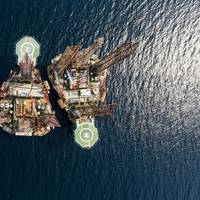
Delegates at this year's U.N. COP28 climate summit are anxious to boost the world's climate change agenda with concrete plans for clamping down on the second-most prominent greenhouse gas – methane.While more than 150 countries have promised since 2021 to slash their methane emissions 30% from 2020 levels by 2030 under the U.S.- and EU-led Global Methane Pledge, few have detailed how they will achieve this.What is needed now is to turn those pledges into urgent action – with financial…
Furetank and Wärtsilä Advance Engine Technology to Reduce Methane Slip
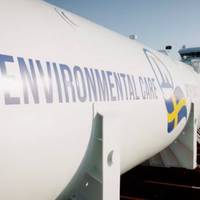
Wärtsilä and Swedish shipping company Furetank are co-developing and testing two technologies showing the potential to halve the methane slip.Running vessels on LNG or bio-LNG reduces emissions of CO2, NOx, SOx and harmful particles, but the downside is methane slip: the release of unburned gas fuel, not fully combusted in the engines.Although the fraction released is small, methane is a more potent greenhouse gas than CO2.Two technical solutions have been tested in Furetank’s Vinga series tankers.
Nord Stream Breaches a Stark Reminder of Undersea Infrastructure Vulnerabilities
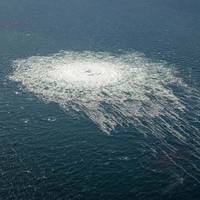
On the night of September 26, near the end of the calm season on the Baltic, a broiling kilometer-wide circle disturbed the face of the sea and a huge mass of methane erupted into the air. The gas formed a cloud that crossed Europe, in what’s considered the greatest single release of this potent greenhouse gas ever recorded.It was caused by four breaches of Russia’s Nord Stream 1 and 2 gas pipelines, located in or near the territorial seas of Denmark and Sweden. Seismologists detected explosions at a depth of 70-90 meters on the seabed.
Partners Exploring Ways to Cut Methane Emissions
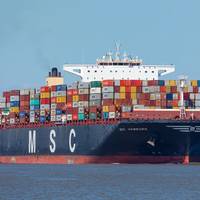
A coalition of companies including oil major Shell and no. 1 container line MSC on Tuesday launched an initiative to explore ways to cut climate-warming methane emissions from ships, which pose a major risk to industry efforts to go greener.Scientists have warned that countries must make rapid reductions in methane, a far more potent greenhouse gas (GHG) than carbon dioxide, to stave off the worst effects of global warming.Shipping is already grappling with ways to cut CO2 through developing fuels of the future such as ammonia and methanol.As a more immediate solution…
Scientists Discover First Methane Seep in Antarctic Sea Floor

Scientists have discovered an active methane seep from Antarctica's sea bed that could shed light on the potent greenhouse gas trapped beneath the frozen continent.Marine ecologist Andrew Thurber first glimpsed what a colleague described as a "microbial waterfall" during a dive in the icy waters of the Ross Sea in 2012. What looked like a superhighway of white patches on the ocean floor were clusters of tiny organisms drawn to the methane leak."My first thought was 'wow,' and I was immediately enamored with what this means for science…
LNG and Shipping Decarbonisation Target
Though liquefied natural gas (LNG) could help the shipping industry to reach its decarbonization target, it could wreck the climate, finds a study.According to a research by the International Council on Clean Transportation (ICCT), switching vessels to the LNG fuel would only serve to worsen shipping’s climate impact due to previously underestimated leakage of the climate super-pollutant methane.More and more ships, including container ships and cruise ships, are being built to run on liquefied natural gas (LNG), which emits approximately 25% less carbon dioxide (CO2) than conventional marine fuels in providing the same amount of propulsion power.However…
8 Energy Firms Commit to Reduce Methane Emissions
BP, Eni, ExxonMobil, Repsol, Shell, Statoil, Total and Wintershall have committed to further reduce methane emissions from the natural gas assets they operate around the world. The energy companies also agreed to encourage others across the natural gas value chain – from production to the final consumer – to do the same. The commitment was made as part of wider efforts by the global energy industry to ensure that natural gas continues to play a critical role in helping meet future energy demand while addressing climate change. Since natural gas consists mainly of methane, a potent greenhouse gas, its role in the transition to a low-carbon future will be influenced by the extent to which methane emissions are reduced.
Op/Ed: Shipping's Energy Challenge
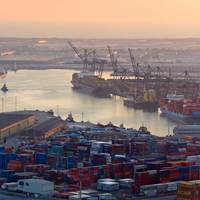
There is no more economically and environmentally efficient way of transporting the world’s goods than by sea. Compared to air or road freight, based on per ton of cargo shipped, shipping’s carbon footprint is small. Yet with the 60,000 or so ships that transport 80 percent of the world’s goods emitting about 1.12bn tons of CO2 each year, almost 4.5 percent of all global greenhouse gas emissions, it is unequivocal that we need a viable way of reducing our environment impact. As other sectors reduce their carbon footprint shipping’s is likely to increase as an overall percentage.
Can Oil & Gas Superpower Lead on Climate Change?
A day before President Barack Obama addressed the United Nations to declare the nation is "stepping up to the plate" to tackle climate change, nearly 400,000 protesters jammed New York City streets in a climate change march. Many held signs calling for an end to fracking. Environmental activists see the U.S. natural gas and oil production boom, spurred by fracking, as a major contributor to global warming. Obama has lauded the country's shale boom as an economic boon and a geopolitical lever. But Obama administration officials told the Reuters Global Climate Change Summit this week that the United States can be an energy superpower and still provide global leadership on climate.
Is Internal Combustion Engine Methane Slip Harmful to the Environment?
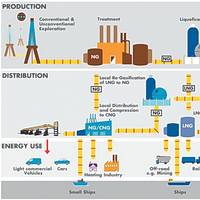
Tighter regulations on exhaust emissions are prompting rapid change within the global shipping industry. Orders for scrubber systems have soared higher than before, suppliers of emissions monitoring software are rapidly taking increasing orders, and the market for natural gas-powered engines continues to break new ground. Choosing the most cost-effective way to reduce exhaust emissions is vital for the industry. Regulations for Emissions Control Areas (ECAs) are now enforced across many countries and there are further designation zones under discussion.
IEA Report Aims to Help End Emissions Growth
Warning that the world is not on track to limit the global temperature increase to 2°C, the International Energy Agency (IEA) urged governments to swiftly enact four energy policies that would keep climate goals alive without harming economic growth. “Climate change has quite frankly slipped to the back burner of policy priorities. But the problem is not going away – quite the opposite,” IEA Executive Director Maria van der Hoeven said in London at the launch of a World Energy Outlook Special Report, Redrawing the Energy-Climate Map, which highlights the need for intensive action before 2020. New estimates for global energy-related carbon dioxide (CO2) emissions in 2012 reveal a 1.4% increase, reaching a record high of 31.6 gigatonnes (Gt), but also mask significant regional differences.
Partnerships of Deep-Sea Methane Scavengers Revealed
The sea floor off the coast of , , is home to a diverse assemblage of microbes that scavenge methane from cold deep-sea vents. Researchers at the California Institute of Technology have developed a technique to directly capture these cells, lending insight into the diverse symbiotic partnerships that evolved among different species in an extreme environment. The community's interconnected metabolism sheds light on how the anaerobic microbes, which consume nearly 80 percent of the methane leaked from marine sediments, limit oceanic emissions of this potent greenhouse gas. Metagenomic analysis, in which the genetic material of all microorganisms swept from their homes in a sample is sequenced wholesale, yields a plenitude of general information.





